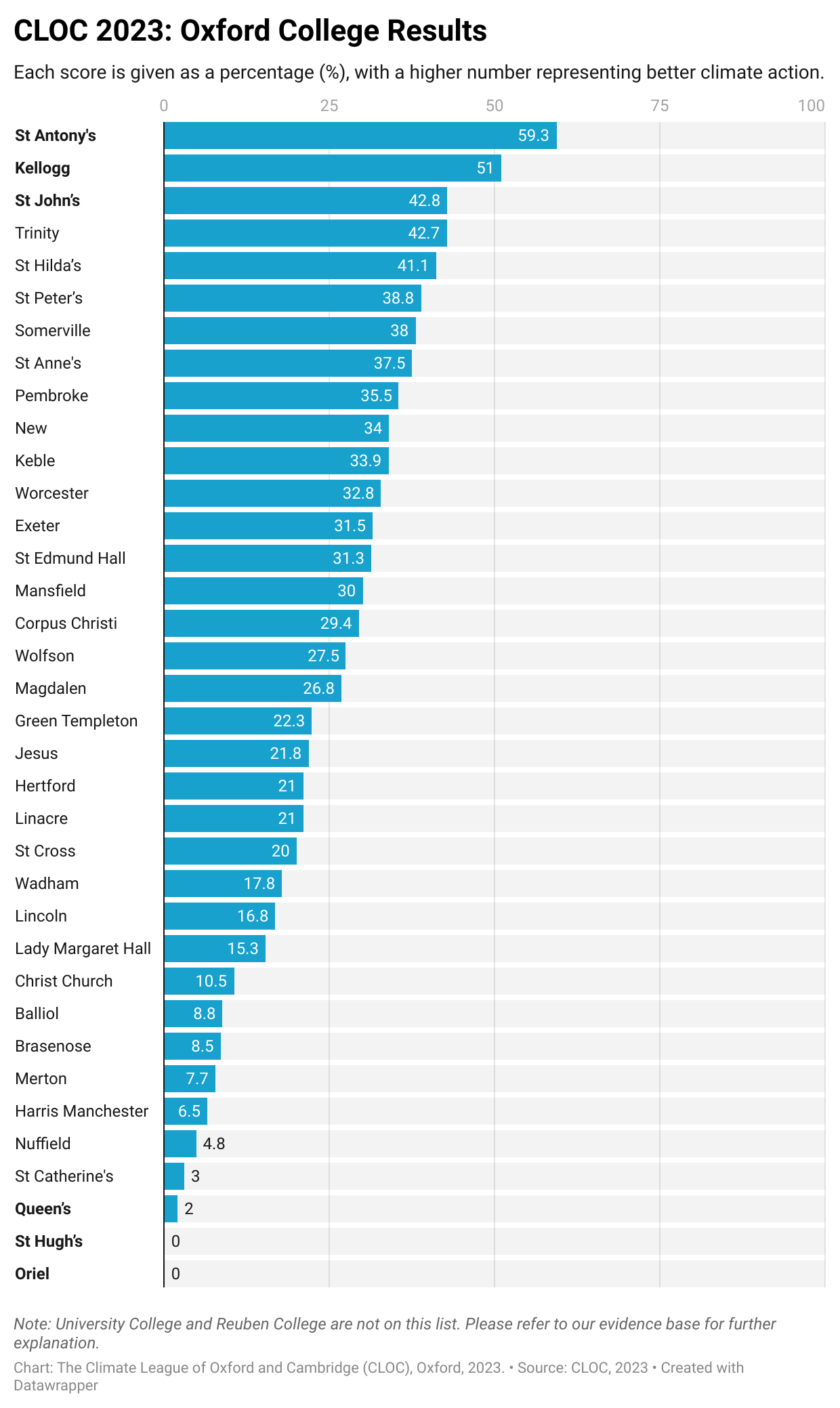Peter Kessler is the creator and curator of Magdalen Monday Movies, which features a different film theme each term. It’s free, it’s open to everyone, and over the last two years it’s become one of Oxford’s cult hits. I meet up with Peter Kessler on a Wednesday morning. He is an affable fellow and immediately offers a cup of coffee. The rays of sunlight flicker over the various artefacts scattered around the Magdalen presidential lodgings. Peter’s study is not untidy, but it shows signs of a mind at work. His BAFTA is proudly displayed on the cabinet of his own make and a signed poster of The Wicker Man is hanging on the wall. We are periodically joined by the several four-legged occupants of the flat. They trample over my recording equipment, but I am just able to reconstruct fragments of this cinematic conversation…
Do you remember the first time you went to the pictures?
I can remember the first play I went to see because I didn’t know how I was supposed to behave in the theatre. It was at the Southport Little Theatre and at one point, Noah was having an argument with his wife on the ark and went “I can say what I want on my own boat, can’t I?” And I just went “Yes!” And he went “Thank you!” And my mother had to explain that you’re not necessarily supposed to just reply to the actors on the stage.
How did your relationship with film evolve through the years?
I read English at Merton, 1982 to 1985. But I’m fascinated with everything else about our culture, apart from English literature, such as theatre, film, TV, comics, and graphic novels. I’m amazed that none of these things can be studied by undergraduates at the University of Oxford. I’m a very slow reader so it’s easier for me to consume cultural output that does not have to cover hundreds and hundreds of pages. A film or a play takes the same amount of time for everybody to consume, so I think I’ve gravitated towards these things because they are, in terms of audience response and reaction, “levelling” and that appeals to me.
How did you get involved in television?
Like most English students, I had no idea what I wanted to do but I was definitely interested in theatre and in particular comedy. I remember watching the Monty Python team win the BAFTA Award for Best Comedy and thinking “That is what I would like to do one day.” When I was here, I ended up doing various comedy activities with people who have gone on to be very, very successful, like Patrick Marber, Armando Iannucci, and Dave Schneider. After leaving here, I started a little theatre company but after one production, I joined up with a comedy double act, with Patrick Marber and Guy Browning, which was called Dross Bros and was active on the mid-1980s alternative comedy scene. At that point, I got a job with Granada Television as a junior researcher working on comedy programs which led to my being a comedy producer in television.
What was the idea behind Magdalen Monday Movies?
I became more and more interested in cinema since I retired in 2005. I found myself exploring it in the reverse chronological order which was an interesting way of discovering where ideas have come from. I began to feel that there was an extremely accessible and exciting world of culture unknown to most people. I’d show these films to my family and friends, and everybody would become completely dedicated to it because they loved being shown things which made them go “That’s so brilliant, why didn’t I know this existed?” And there were loads and loads of films like that. I think that’s the key appeal for me.
So you could say there are two intentions. One is to give people an outlet which gets them away from their studies. Students nowadays work much harder than we did in our day. In my day, if I wanted to go to work in the Radcliffe Camera, I could walk in there any time of day and sit anywhere I wanted. Now, if you get there after 9.45 in the morning, you will not get a seat. And there’s far more seats in there now than there were. People are much, much more serious. There are fewer societies now and those societies that there are seem to be primarily career-focused. In our day, there were tiddly-wink societies and dangerous sports societies. People were more ready to have a go. Even in the drama scene, the drama that’s going on now is outstandingly good. But it’s done by far fewer people in university. It’s done by a core of students who are really interested in drama. In our day, there was much more of it going on and there were a lot of people who were just having a go.
Number two is that I think it’s astonishing that the university doesn’t have any way for undergraduates to study film. But the overwhelming response to MMM demonstrates that there is a desire to look at film. While I’ve been doing this, the Magdalen Film Society has also reawakened. It used to get maybe 4-8 people going along to their screenings but when I popped into their last one, there were 40-50 people there watching a Tarkovsky movie. I’m in the process of creating the university’s first film research programme but there are already a lot of post-graduates in the university who are working on film in different ways, who have no idea about each other. They have no way of communicating with each other, other than by chance. So under TORCH, I am creating a film studies network, which is allowing all these post-graduates, and indeed anybody who is interested, to come together with regular events, which will be talks and conferences and papers, which they can use to learn from each other and generate an academic side to the study of film.
What is the story behind the German silent film season?
I’d always heard of these famous films like Nosferatu and Metropolis. When I started to look at other films by Murnau and Lang, I found that some of the other films were, in my mind, much better than these two most famous ones. Murnau was much more emotional and poetic in his work if you look at Sunrise, Der Letzte Mann, Faust or Tartuffe. He had the ability to make staggering visuals which were completely absorbing. I started to see in his and Lang’s work things that I felt I’d seen in American films from much later, especially with Lang whose Metropolis has inspired an awful lot of science fiction films. Or looking at some other Langs, The Spiders is just like a 1919 Indiana Jones. I kept seeing this again and again. Lang made this enormous two-part epic called Die Nibelungen. It’s just mind-blowing as an experience, and the special effects are so ahead of their time. There’s one right near the start where Siegfried is given a sword by the dwarves who brought him up, and to demonstrate how sharp the sword is, this little guy blows a little feather into the air and holds the sword out, and the feather comes down, and as it goes over the sword, it splits in two. And the effect is just perfect. I have no idea how they did it but it’s just a moment of cinema that’s completely captivating.
Before these people came around, cinema had no accessible language that we all understand. Simple things like what does it mean when the camera moves? What does it mean when you position a camera high or a low? What does it do to the audience who are learning to read these shots? They were creating an art form, and all of them set off for America and ended up in Hollywood. And so, what they started in Germany effectively ended up becoming the language of cinema as propagated via American money to the rest of the world. I thought, what an astonishing story. That’s why I called that season 1920s German cinema: the Hollywood that Might Have Been. If they hadn’t all been effectively chased out of Germany with the rise of Hitler, then Hollywood might have been Hanover. You’d never know, would you?
Are there any contemporary film artists or upcoming releases you would like to draw attention to?
I’m quite excited about the new Ari Aster that’s coming out, called Beau is Afraid. The trailer looks really interesting. I go to the cinema quite frequently and since my daughter is working part-time as an usher at the Battersea Power Station cinema, she occasionally says “Oh, you have to see this one.” Recently, I really enjoyed Triangle of Sadness, Living with Bill Nye which was based on Ikiru but is not as good, Till about the murder of Emmett Till…
(Peter’s daughter Katie appears inside the door frame)
Katie: Hello!
(to Katie) Hello. Is there any emerging trends or directors that one should be looking out for?
Katie: Elevated horror?
What does that mean?
Katie: Ari Aster.
I just said Ari Aster! But what’s elevated horror?
Katie: Elevated horror is the slightly contested name for the version of horror that’s pioneered by The Babadook and then basically just like psychological horror but with a new name. It’s horror about trauma but it’s not actually that scary. It doesn’t reply on jump scares and such.
Thank you, that’s given me something I want to say. (bids Katie adieu) One season that I haven’t done is horror. I don’t really want to do a horror season because everybody does them. There’s a good reason why because it’s arguable that horror is thegenre of cinema because it enables directors to bring things to the party that they can’t do in any other medium. It’s explored this fascinating psychological field of why people want to be scared. There are entire festivals given over to horror films that I almost feel like it’s too obvious a choice. But I do think there are some great horror films out there.
What can we expect in Michaelmas?
I’ve been toying with four possible ideas. I thought I might do a season called There’s More to Japanese Cinema than Akira Kurosawa. Another idea was to do one called Traumatic Animation, which is very non-Disney adult cartoons that raise the stakes in terms of subject matter and emotional involvement, such as The Plague Dogs. Another thought I had was to just to do a series of films that revolve around the Holocaust, but with different genres, like comedies, documentaries, dramas. And then the last thought I had, I think this might be the one I do. Since we’ve done a somewhat academic term this term, I might go non-academic next term and go for Seminal 70s. That would be nine ridiculously great films from this decade, which is the famous turning point of cinema. So we might have a special Godfather day, for example. We might even show Jaws. We might even get right out of The Wicker Man.
Why should people come to see documentaries this season?
Documentaries have provided some of the most thrilling films ever made. At their best, you almost can’t believe that what you’re watching is actual reality. We screened The King of Kong and it’s hard to believe that the world of competitive vintage arcade game playing could be this microcosm of society, but it is. Every single one of these documentaries make you reflect on what it is to be a human being.
Any final thoughts?
Come to Magdalen Monday Movies. You will not regret it. And whatever happens, you’re not getting your money back.
Magdalen Monday Movies take place in the Magdalen College Auditorium. Free tickets, including free popcorn, are available on Eventbrite.









